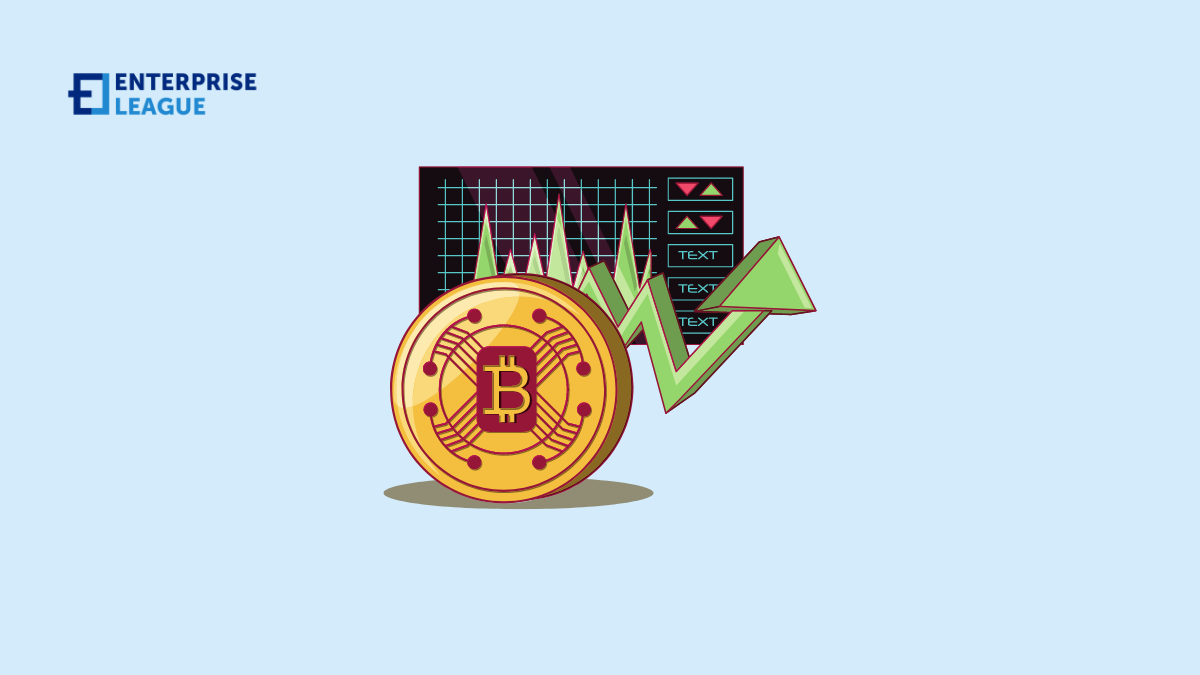Mastery of the blockchain: Unveiling the secrets of cryptocurrency trading
June 16, 2023

In recent years, the rise of cryptocurrencies has transformed the financial landscape, captivating both seasoned investors and curious newcomers. At the core of this technological revolution lies the blockchain, a decentralized ledger that has given birth to a diverse and dynamic ecosystem of digital currencies.
However, the world of cryptocurrency trading can be daunting, with its rapid market fluctuations, complex terminology, and the ever-present risk of financial loss. To truly thrive in this landscape, one must uncover the secrets of cryptocurrency trading and master the intricacies of the blockchain.
This article aims to shed light on the inner workings of cryptocurrency trading, unveiling the secrets that can help individuals harness the power of blockchain technology.
Understanding Blockchain and cryptocurrency trading
Defining Blockchain
Blockchain technology, at its core, is a digital ledger system that allows for the secure and efficient recording of transactions over a decentralized network. It was originally devised to establish trust in financial dealings after the 2008 crisis and paved the way for cryptocurrencies like Bitcoin.
What makes this innovation so groundbreaking is its ability to prevent tampering or alteration of data once it’s added to the chain. This is accomplished through complex cryptographic methods, where each block holds a specific number of records cryptographically linked to previous blocks – forming an immutable chronology. Thus, making alterations becomes computationally impractical because altering one block would require changing all preceding ones as well.
Types of cryptocurrencies
Cryptocurrencies are digital or virtual currencies that use encryption techniques to secure and verify transactions. Here are some types of cryptocurrencies:
- Bitcoin: The first and most well-known cryptocurrency, created in 2009.
- Ethereum: A decentralized platform for building decentralized applications (Dapps) using smart contracts.
- Ripple: A real-time gross settlement system, currency exchange, and remittance network.
- Litecoin: Similar to Bitcoin but with faster transaction confirmation times and a different hashing algorithm.
- Bitcoin cash: A fork of Bitcoin that aims to increase the block size limit to improve scalability.
- Cardano: A third-generation blockchain platform for building smart contracts and decentralized applications.
- Polkadot: A scalable multi-chain network that allows different chains to communicate with each other.
- Stellar: A payment protocol for fast, cross-border transactions between any pair of currencies.
Each cryptocurrency has its unique features, benefits, risks, and trading strategies. It’s important to do your research before investing or trading in any cryptocurrencies.
The relationship between blockchain and cryptocurrency trading
Blockchain technology is the foundation of cryptocurrency trading. It’s essentially a decentralized ledger system where every transaction is recorded and verified by multiple parties, ensuring transparency and trustworthiness. Cryptocurrencies are digital assets that use blockchain technology to function. The decision to enter the world of cryptocurrency trading requires an understanding of how blockchain technology works. This knowledge helps traders make informed decisions about which cryptocurrencies to trade and how to invest in them for maximum returns.
Getting started with cryptocurrency trading
Select the right cryptocurrency exchange, taking into account factors such as fees, user interface, security measures, and reputation.
Selecting the right cryptocurrency exchange
One of the critical steps in cryptocurrency trading is selecting a reputable exchange. When choosing an exchange, factors to consider include security features, user-friendliness, fees, and reputation.
A reliable exchange should offer cold storage options for your digital assets and two-factor authentication for secure logins. It must also have a robust customer support system that provides assistance 24/7. For example, Binance is considered one of the best exchanges due to its low transaction fees and wide range of digital assets available for trading. Other popular exchanges include Coinbase and Kraken which are known for their easy-to-use platforms and high-level security features.
Trading pairs and volumes
Selecting the right trading pairs and understanding cryptocurrency volumes are essential skills for mastering cryptocurrency trading. Trading pairs refer to the two currencies being traded on an exchange, such as Bitcoin and Ethereum or Bitcoin and US dollars. Higher volume cryptocurrencies will have more active markets, making them easier to buy and sell at fair prices. It is important to keep in mind that different exchanges may list different trading pairs, so it’s crucial to select an exchange that offers the desired pairings.
Understanding volume is also critical when selecting which cryptocurrencies to trade. Volume refers to how much of a particular cryptocurrency is being exchanged over a given period of time. By selecting high-volume cryptocurrencies with favorable trading pairs on reputable exchanges, traders can increase their chances of success in this exciting new market while minimizing their risks.
The importance of cryptocurrency wallets and security
When it comes to cryptocurrency trading, security is key. Cryptocurrency wallets are used to store and manage your digital assets, so having a reliable wallet is crucial. There are different types of wallets available, including hardware wallets, software wallets, and web-based wallets.
In addition to selecting the right type of wallet for your needs, it’s also important to take steps to secure your account. This includes using strong passwords, enabling two-factor authentication (2FA), and avoiding public Wi-Fi when accessing your crypto accounts. Taking these measures can help protect you from crypto theft or hacking attempts. In fact, according to a report by CipherTrace in 2020, over $1 billion worth of cryptocurrency was stolen through hacks and scams during that year alone.
The benefits of cryptocurrency trading
Cryptocurrency trading has several benefits, including the potential for high returns, easy accessibility, and decentralization.
Potential for high returns
Cryptocurrency trading has opened up a new world of opportunities for investors seeking high returns. With the volatility of the crypto market, there is huge potential to make significant profits in a short amount of time.
For instance, Bitcoin’s return on investment over the past decade has been astronomical, making early adopters millionaires almost overnight. Altcoins such as Ethereum have also seen impressive gains in recent years, with some even surpassing Bitcoin’s growth rate.
In addition to its profit potential, cryptocurrency trading offers greater accessibility than traditional financial markets. Unlike stocks or forex trading which require large capital investments or extensive knowledge about complex financial instruments, anyone with an internet connection can start investing in cryptocurrencies with as little as $10.
Accessibility
Cryptocurrency trading offers a level of accessibility that’s hard to match with traditional investments. Unlike stocks and bonds, which can require significant amounts of capital to get involved, cryptocurrencies are accessible to anyone with an internet connection.
Additionally, the decentralized nature of blockchain technology means there are fewer barriers to entry for those looking to invest in cryptocurrencies. With cryptocurrency wallets available on smartphones and online services, it’s easy to buy and sell digital assets from anywhere in the world. This makes it possible for people who may not have had access to traditional investment opportunities due to geographic or financial restrictions to participate in this exciting new market.
Decentralization
Decentralization is a crucial aspect of blockchain technology and cryptocurrency trading. In the case of Bitcoin, for example, it means that no single person or group has control over the network.
This provides a level of security and transparency that traditional financial systems cannot match. Decentralization also removes intermediaries from transactions, reducing costs and increasing efficiency.
One key benefit of decentralization in cryptocurrency trading is the elimination of centralized exchanges as the sole authority regarding pricing and market trends. Instead, decentralized finance (DeFi) platforms allow users to directly transact with each other using smart contracts on the blockchain network without needing an intermediary such as an exchange to facilitate their trades.
Mastering cryptocurrency trading
In order to master cryptocurrency trading, it is essential to have a solid understanding of both fundamental and technical analysis, implement effective risk management strategies, learn advanced terminology, utilize day trading strategies, and make use of technical indicators.
Fundamental and technical analysis
When it comes to mastering cryptocurrency trading, understanding both fundamental and technical analysis is essential. Fundamental analysis involves analyzing the underlying factors that affect the value of a particular cryptocurrency, such as its technology, team, and potential use cases.
On the other hand, technical analysis involves studying past market data to identify trends and patterns that may indicate future price movements. By combining these two approaches, traders can gain a deeper understanding of both the long-term potential and short-term fluctuations in the crypto market.
Risk management
Risk management is a crucial aspect of successful cryptocurrency trading. Understanding how to mitigate and manage potential risks can prevent significant losses and protect investments.
One critical element of risk management is diversification, spreading investments across different cryptocurrencies rather than putting all your eggs in one basket. Additionally, utilizing stop losses and setting boundaries for profit-taking can limit both gains and losses. For example, determining the maximum amount you are willing to lose on a trade before closing protects you from losing more than intended.
Overall, successful risk management requires discipline, patience, and knowledge about market conditions – as well as consideration for factors beyond just price movements such as security breaches or regulatory changes – ensuring that traders are prepared for any scenario that might arise in the rapidly changing world of cryptocurrency trading.
Advanced terminology
In order to fully master cryptocurrency trading, it’s important to have a deep understanding of the advanced terminology used in the crypto world. Here are some crucial terms every successful crypto trader should know:
- Whale: A term used to describe an individual or organization that holds a large amount of cryptocurrency.
- FOMO: Fear of Missing Out. This is when investors feel the pressure to buy into an investment because they fear missing out on a potential profit.
- HODL: Hold On for Dear Life. This term refers to a long-term investment strategy where traders hold onto their positions instead of reacting to short-term fluctuations in the market.
- Altcoin: Any cryptocurrency other than Bitcoin is referred to as an Altcoin.
- Bagholder: An investor who has been holding onto a particular coin for too long and suffered losses due to its decreasing value.
- Hard fork: A change in the blockchain protocol that requires all nodes to upgrade their software.
- ICO: Initial Coin Offering, a way for startups and companies to raise funds by selling their own cryptocurrencies before launching their products or services.
- Satoshi: The smallest unit of Bitcoin currently possible (0.00000001 BTC).
- Pump and dump: When traders artificially inflate the price of a particular coin through positive media coverage, only to sell it off once it reaches its peak value, causing other investors who bought at high prices to lose money.
- Mining pool: A group of miners working together in order to mine cryptocurrencies more efficiently by pooling their resources.
In general, having a clear understanding of these advanced terms will help you navigate the crypto market with confidence and avoid common pitfalls that can cause significant losses in your investments.
Day trading strategies
If you’re a cryptocurrency trader looking to maximize your profits, day trading is one strategy worth considering. Here are some tips for successful day trading in the volatile crypto market:
- Set clear goals: Before starting your day trading session, set clear goals and stick to them. Decide how much profit you want to make and what level of risk you are willing to take on.
- Keep an eye on market volatility: Cryptocurrency markets can be highly volatile, so it’s important to keep an eye on price movements throughout the day. Use technical analysis tools such as moving averages and trendlines to identify potential entry and exit points.
- Use stop-loss orders: To minimize losses, use stop-loss orders when placing trades. This strategy automatically closes out a trade if the price drops below a certain level.
- Stay updated on news and events: Keep yourself updated on any current events or news that might affect the cryptocurrency market. Be aware of any significant regulatory changes or announcements from major companies in the industry.
- Practice proper risk management: It’s crucial to practice proper risk management when day trading cryptocurrencies. Only trade with funds that you can afford to lose, and avoid overtrading or making impulsive decisions based on emotions.
By implementing these strategies into your day trading routine while keeping in mind the importance of risk management, you can increase your chances of success in the unpredictable but potentially lucrative world of crypto trading.
Utilizing technical indicators
As a crypto trader, one of the best ways to make informed decisions and increase your chances of success is by utilizing technical indicators. Here are some key indicators you should know:
- Moving averages: This indicator helps you to identify trends and determine whether the market is bullish or bearish. It calculates average prices over a specific period and displays them as a line on a chart.
- Relative Strength Index (RSI): RSI indicates whether an asset is overbought or oversold. It measures the strength of price movements over time and can help you predict potential reversals.
- Bollinger bands: These bands help detect volatility by showing the upper and lower limits of an asset’s standard deviation. When the band becomes narrow, it indicates low volatility, while wider bands suggest greater volatility.
- Fibonacci retracements: Fibonacci retracements use support and resistance levels to determine entry and exit points in trading. These levels are based on patterns that appear in nature, such as the Golden Ratio.
- MACD (Moving Average Convergence Divergence): MACD measures momentum in an asset’s price movement over time. It compares two moving averages to signal when it’s time to buy or sell.
By using these technical indicators, you can gain valuable insights into cryptocurrency trading trends, and market behavior, and identify profitable entry and exit points for your trades – helping you become more successful in your endeavors as a crypto trader.
Resources for learning cryptocurrency trading
The highlights various resources for learning cryptocurrency trading, including online communities and forums, books, and websites for further education, following expert traders, and taking cryptocurrency mastery courses.
Cryptocurrency mastery courses
- Comprehensive education: Cryptocurrency Mastery Courses cover a wide range of topics, including technical analysis, fundamental analysis, risk management, advanced terminology, and day trading strategies.
- Expert insights: Some of the top cryptocurrency ninjas and expert traders share their secrets and unique approach to crypto trading during these courses.
- Advanced strategies: The courses are designed to teach advanced trading strategies that lead to consistent profits over time.
- Accessible learning: Many of these courses are available online, making them accessible from anywhere in the world at any time convenient for you.
- Practical application: With hands-on training and real-world examples provided during the courses, students can apply what they learn immediately in their own crypto trades.
By enrolling in Cryptocurrency Mastery Courses, traders gain access to a wealth of knowledge on how blockchain technology works, mining cryptocurrencies, decentralized finance (DeFi), blockchain security, managing risks associated with volatility within the crypto market as well as understanding new cryptocurrency altcoins that may emerge from time to time.
Online communities and forums
Online communities and forums have become an integral part of the cryptocurrency trading experience. Here are a few benefits of joining these platforms:
- Networking: By joining online communities and forums, traders can connect with other crypto enthusiasts from around the world. These connections can lead to new opportunities for learning and growing in the field.
- Market insights: Online communities and forums are a great place to stay updated on market trends and news. In addition, traders can learn more about upcoming ICOs, new regulations, and other important industry developments.
- Sharing knowledge: Traders can share their experiences with others in the community by offering insights into what works best for them. This is a great opportunity for those who are just starting out to learn from experienced traders.
- Technical support: Many online communities and forums offer technical support for new users who may be struggling with tools like wallets or exchanges.
- Idea generation: Collaborating with others in online communities and forums can spark new ideas that might not have been considered before.
Overall, online communities and forums provide an invaluable resource for crypto traders looking to connect, learn, grow, and stay up-to-date on the latest trends in the industry.
Books and websites for further education
If you’re looking to expand your knowledge of cryptocurrency trading beyond the basics, there are plenty of resources available online. Here are some top books and websites to check out:
- The Bitcoin standard: This book explores the history and potential future of Bitcoin as an alternative to traditional currencies.
- Cryptoassets: A comprehensive guide to investing in cryptocurrencies and understanding the wider ecosystem.
- CoinDesk: A leading news source for all things blockchain and cryptocurrency, featuring articles, analysis, and market data.
- CryptoCompare: A platform that provides real-time pricing data, exchange reviews, and educational resources for novice traders.
- Investopedia’s Cryptocurrency section: An extensive collection of articles covering everything from blockchain technology to trading strategies and industry news.
- Antonopoulos: Website of renowned Bitcoin expert Andreas Antonopoulos, featuring free online courses and a library of talks and presentations on all aspects of cryptocurrency.
By using these resources, you can stay up-to-date on the latest trends in cryptocurrency trading while honing your skills with expert guidance from industry leaders.
Following expert traders
One of the best ways to improve your skills in cryptocurrency trading is by following expert traders. These top-performing traders have years of experience, and it’s worth learning from their strategies and insights.
For instance, Samani recommends that aspiring crypto traders should learn from other experienced investors who are already making substantial crypto profits. In addition, there are lots of websites and YouTube channels run by successful crypto traders who provide valuable guides for newbies.
Conclusion
Mastering the blockchain and revealing the secrets of cryptocurrency trading can be a game-changer for traders looking to harness the potential for high returns and accessibility in this growing market. With advanced terminology, technical analysis, online resources, and expert strategies at your fingertips, you can take your crypto day trading to a whole new level.
As blockchain technology continues to disrupt traditional finance models and open up exciting new possibilities in decentralized finance (DeFi), investing in digital assets could be one of the smartest moves you make.
More must-read stories from Enterprise League:
- Importance of online privacy laws in the digital era and how they protect us.
- Benefits of owning a business according to business owners.
- Learn about all the tips and apps you need to successfully manage a remote team.
- How to ask for a deposit in a contract without being awkward or losing a client.
- Unique and creative guerrilla marketing ideas for small businesses.
Related Articles
Navigating Personal Injury Claims in Manhattan: Essential Guidance for Victims
In the bustling streets of Manhattan, where millions walk crowded sidewalks, heavy traffic, and towering construction sites daily, accidents resulting from negligence occur with unfortunate frequency. Personal injury law provides a framework for victims to seek...
Can I Find Custom Storage Solutions at an Affordable Price? B2B Partnerships That Make It Possible
Many small business owners, kitchen and bath retailers, homebuilders, remodelers, renovators and home designers believe custom cabinets can't be affordable. After all, every degree of customizability inevitably drives up the price. This common misconception often...
Need Help Finding Top-Rated Storage Container Rental Services? Here Are the 7 Top Options in Oklahoma City
Finding reliable storage can be challenging when space is limited or operations expand. Storage container rental services provide a flexible, cost-effective solution for business owners. The right provider impacts efficiency, security and timelines, so it's important...
Navigating Personal Injury Claims in Manhattan: Essential Guidance for Victims
In the bustling streets of Manhattan, where millions walk crowded sidewalks, heavy traffic, and towering construction sites daily, accidents resulting from negligence occur with unfortunate frequency. Personal injury law provides a framework for victims to seek...
Can I Find Custom Storage Solutions at an Affordable Price? B2B Partnerships That Make It Possible
Many small business owners, kitchen and bath retailers, homebuilders, remodelers, renovators and home designers believe custom cabinets can't be affordable. After all, every degree of customizability inevitably drives up the price. This common misconception often...





